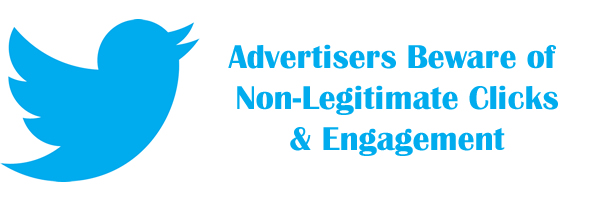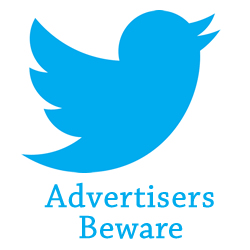
For those who don’t use Twitter ads, he is correct. From the pricing for Twitter ads page:
You’ll only be charged when people follow your Promoted Account or retweet, reply, favorite or click on your Promoted Tweets. You’ll never be charged for your organic activity on Twitter.
In theory, charging advertisers based on engagement is a good thing, since you don’t need to pay when someone merely sees your ad in their feed. You get the added bonus of building brand awareness simply from all those people seeing your brand even without engagement. Someone else made a suggestion for running up a brand’s ad budget by simply favoriting the tweet for a “silent and costly” charge to the advertiser.
However, many advertisers won’t be happy about paying for those who are replying as hecklers or who are replying for the sole purpose of driving up the advertisers ad costs, when they have no intention of engaging in a legitimate way. While paying for invalid clicks on any platform is just part of doing business, paying to be heckled will leave many Twitter advertisers pretty unhappy.
Does Twitter have filters to prevent this kind of fake engagement? It is hard to say. A case could be made that “any engagement is good engagement”, playing off the old “any publicity is good publicity.” And it is unclear if advertisers could get refunds from non-legitimate clicks, as their Twitter ad documentation doesn’t detail a process for getting refunds from any type of ad issues. But with the price of some Twitter ads, you can only imagine that some brands will be annoyed if they are getting replies that are variations of “F off” or “Your company sucks.”
If you find your ads being engaged by hecklers, keep track of it and ask your account rep or support if they can be refunded. But this would only work for invalid @replies and not the “silent but costly” favoriting. However, if Twitter refuses to refund, you might want to consider suspending Twitter ads until Twitter agrees to solve the problem or come up with a suitable refund plan for non-legitimate engagement.
Jennifer Slegg
Latest posts by Jennifer Slegg (see all)
- 2022 Update for Google Quality Rater Guidelines – Big YMYL Updates - August 1, 2022
- Google Quality Rater Guidelines: The Low Quality 2021 Update - October 19, 2021
- Rethinking Affiliate Sites With Google’s Product Review Update - April 23, 2021
- New Google Quality Rater Guidelines, Update Adds Emphasis on Needs Met - October 16, 2020
- Google Updates Experiment Statistics for Quality Raters - October 6, 2020
